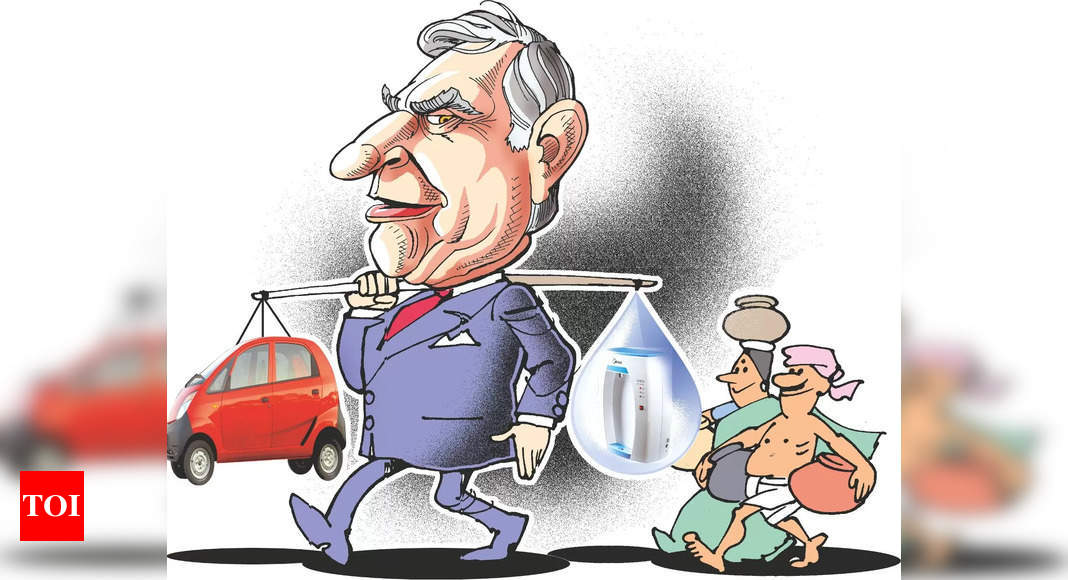
Among the most audacious projects that Ratan Tata attempted, Nano was perhaps one that was closest to his heart. The car, which was conceptualised by Tata in the early 2000s, was aimed at providing middle-class Indians with a safe, and affordable four-wheeler.
“What really motivated me, and sparked a desire to produce such a vehicle, was constantly seeing Indian families on scooters, maybe the child sandwiched between the mother and father, riding often on slippery roads,” Tata said in an Instagram post in May 2022, long after the much-fancied car – which created a stir across the world due to its cheap pricing of Rs 1 lakh ($2,500 then) – had faded away.
The Nano was called the ‘lakhtakia’ car (Rs 1 lakh) in local parlance in the run-up to its launch, and was launched with much fanfare by Tata in March 2009 (it was first unveiled at the 2008 Auto Expo in New Delhi).
The car, which initially saw a deluge of bookings, was soon mired in controversies – right from the location of the factory where it had to be produced (the then West Bengal opposition leader Mamata Banerjee’s stir saw its manufacturing shift from Singur to Sanand in Gujarat in Oct 2008); to facing sporadic incidents of fire due to mechanical issues; to being billed as unsafe; to be being branded as a ‘poor man’s car’. The last one saw many middle-class Indians avoid buying the car, which came strapped with a 625cc engine and was rather smaller in size compared to many other entry cars such as the Maruti 800.
Later, in a TV interview in 2013 – when the Nano was gradually being written off from the market with very low interest from buyers — Tata himself admitted that its image of being a poor man’s car had acted as a “stigma”.
Legend Ratan Tata No More; Dies At Mumbai Hospital I Tributes Pour In I Tata Sons
He admitted that Tata Motors had made a mistake in marketing and positioning of the car. “It became termed as the cheapest car by the public and, I am sorry to say, by ourselves, not by me, but the company when it was marketing. I think it was unfortunate.” He said that the car should have been marketed more to two-wheeler buyers as an “affordable” and safe, all-weather option, but not as “the cheapest” vehicle on the road. Such was the downfall of the Nano that Tata Motors did not produce a single unit of the car in 2019.








